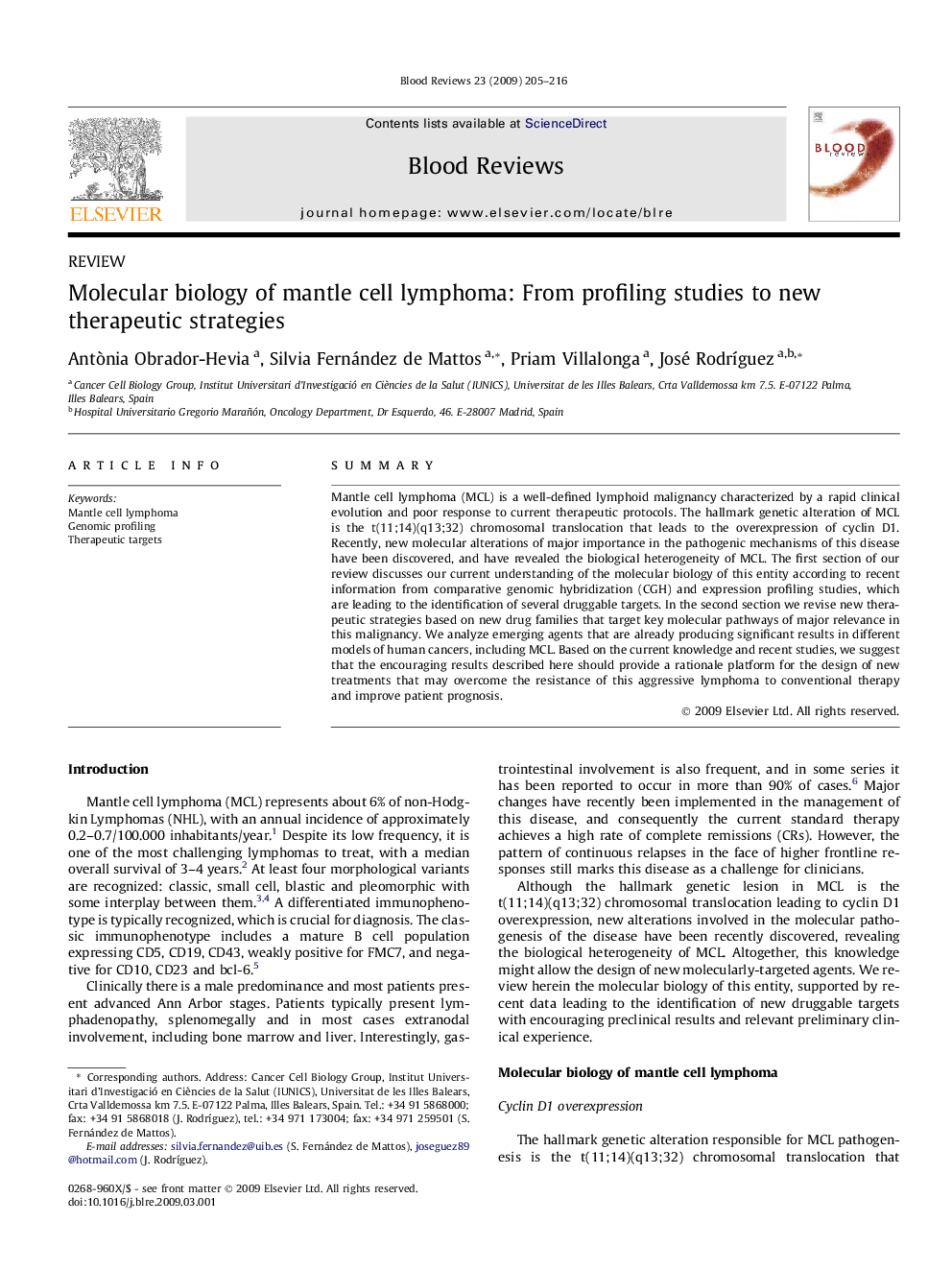| Article ID | Journal | Published Year | Pages | File Type |
|---|---|---|---|---|
| 2106652 | Blood Reviews | 2009 | 12 Pages |
SummaryMantle cell lymphoma (MCL) is a well-defined lymphoid malignancy characterized by a rapid clinical evolution and poor response to current therapeutic protocols. The hallmark genetic alteration of MCL is the t(11;14)(q13;32) chromosomal translocation that leads to the overexpression of cyclin D1. Recently, new molecular alterations of major importance in the pathogenic mechanisms of this disease have been discovered, and have revealed the biological heterogeneity of MCL. The first section of our review discusses our current understanding of the molecular biology of this entity according to recent information from comparative genomic hybridization (CGH) and expression profiling studies, which are leading to the identification of several druggable targets. In the second section we revise new therapeutic strategies based on new drug families that target key molecular pathways of major relevance in this malignancy. We analyze emerging agents that are already producing significant results in different models of human cancers, including MCL. Based on the current knowledge and recent studies, we suggest that the encouraging results described here should provide a rationale platform for the design of new treatments that may overcome the resistance of this aggressive lymphoma to conventional therapy and improve patient prognosis.
